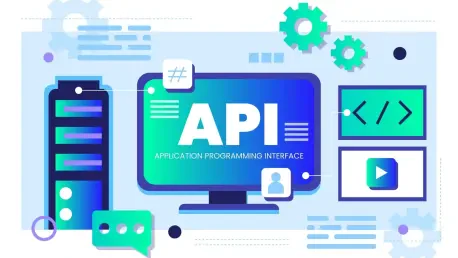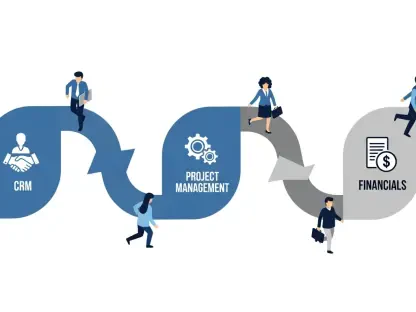Unveiling Insomnia 12: A Game-Changer for MCP API Testing
In an era where artificial intelligence drives innovation at an unprecedented pace, ensuring secure and efficient data access protocols for AI applications has become a pressing challenge for DevOps teams across industries. The Model Context Protocol (MCP), designed to standardize interactions between AI systems and data sources, presents unique complexities that can lead to misconfigurations and vulnerabilities if not tested rigorously. Kong’s latest update, Insomnia 12, emerges as a pivotal solution, specifically tailored to address these hurdles in MCP API testing within AI-driven environments.
This update marks a significant leap forward by introducing tools that streamline the testing process for MCP implementations. With features such as direct connections to MCP servers, the ability to create mock servers effortlessly, and built-in compliance mechanisms, Insomnia 12 equips teams to tackle the intricacies of AI data protocols head-on. The focus here is on practical enhancements that empower developers and testers to validate setups with precision and confidence.
The growing adoption of MCP as a standard underscores the urgency for robust testing frameworks. As AI applications proliferate, the risks tied to poorly managed protocols can have far-reaching consequences, making tools like Insomnia 12 not just beneficial but essential. This guide aims to explore how these advancements transform MCP API testing, offering actionable insights for teams navigating this dynamic landscape.
The Rise of MCP: Why It Matters for AI and API Testing
The Model Context Protocol, originally developed by Anthropic, has emerged as a cornerstone for standardizing data access in AI applications, ensuring seamless communication between systems and models. As organizations increasingly integrate AI into their operations, MCP provides a structured framework to manage the flow of information, particularly for large language models that rely on consistent data inputs. Its significance lies in enabling interoperability across diverse AI ecosystems, a critical need in today’s tech landscape.
However, the rapid deployment of MCP comes with notable challenges, including the risk of misconfigurations that could expose sensitive data to unauthorized access. With AI systems often handling vast amounts of proprietary or personal information, any flaw in protocol implementation can become a gateway for cyber threats. This reality places immense pressure on DevOps teams to validate MCP setups thoroughly, highlighting the need for specialized testing tools.
Amid this evolving environment, the stakes for secure and reliable API testing have never been higher. MCP’s role in AI-driven processes means that lapses in testing can disrupt operations or compromise security on a large scale. Tools that can address these concerns, such as Insomnia 12, are vital for maintaining integrity and trust in AI deployments, ensuring that innovation does not come at the expense of safety.
Exploring Insomnia 12’s Capabilities for MCP API Testing
Insomnia 12 offers a suite of features designed to enhance MCP API testing, addressing both deployment challenges and validation needs with precision. This section provides a detailed breakdown of how these capabilities can be leveraged by DevOps teams to improve their testing workflows. Each step outlined below focuses on practical applications, ensuring that testers can implement these tools effectively.
Step 1: Establishing Direct MCP Server Connections
One of the standout features of Insomnia 12 is its ability to establish direct connections to MCP servers, enabling real-time testing of protocol interactions. This functionality allows testers to interact with live environments, simulating actual usage scenarios to identify potential issues before they impact production systems. Such direct access is crucial for validating how MCP clients and servers communicate under real-world conditions.
Customizing Parameters for Precision
Beyond basic connectivity, Insomnia 12 supports the customization of parameters to fine-tune testing scenarios. Testers can define specific inputs and conditions to mimic edge cases or stress points, uncovering weaknesses in MCP implementations that might otherwise go unnoticed. This level of control ensures that every aspect of the protocol’s behavior is scrutinized, paving the way for more robust setups.
Step 2: Inspecting Protocol-Level Interactions
Another critical capability of Insomnia 12 is its detailed inspection of MCP protocol messages and authentication responses. This feature provides transparency into how data is exchanged and secured, allowing testers to pinpoint discrepancies or inefficiencies at the protocol level. Such visibility is essential for debugging complex issues that arise during MCP interactions.
Identifying Authentication Vulnerabilities
A key aspect of this inspection process is the ability to analyze authentication responses for potential vulnerabilities. By closely examining how MCP servers handle access requests, teams can detect flaws that might allow unauthorized entry or data leaks. Addressing these security gaps during testing prevents costly breaches, safeguarding sensitive AI-driven operations.
Step 3: Creating Mock Servers for Efficient Testing
Insomnia 12 simplifies the creation of mock servers, a powerful tool for testing MCP clients and servers without relying on live environments. Testers can build these simulations using natural language descriptions, URLs, JSON samples, or OpenAPI specifications, making the process accessible and efficient. This approach accelerates testing cycles by eliminating dependencies on external systems.
Streamlining Testing with Natural Language Inputs
Particularly noteworthy is the support for natural language inputs in mock server creation, which lowers the barrier for non-technical team members to contribute to testing efforts. By describing desired behaviors in plain terms, stakeholders can help shape test environments that reflect real user needs. This democratization of testing enhances collaboration across departments, boosting overall productivity.
Step 4: Enhancing Productivity with Automation and Version Control
Productivity gains are further amplified through Insomnia 12’s automation features and version control capabilities. Automated commit messages and logical file groupings streamline the management of test data, while Git Sync ensures consistency across multiple MCP instances. These tools reduce manual overhead, allowing teams to focus on critical validation tasks.
Ensuring Consistency with Git Sync
Git Sync stands out as a mechanism for maintaining version control, particularly in dynamic MCP environments where updates are frequent. By synchronizing changes across repositories, it minimizes the risk of errors during rapid iterations. This feature is invaluable for teams managing diverse AI models, ensuring that all components remain aligned throughout the testing process.
Step 5: Supporting Compliance and Security Standards
Compliance with organizational and regulatory standards is a cornerstone of Insomnia 12’s design, with features like role-based access controls (RBAC) integrated into the testing framework. These mechanisms ensure that only authorized personnel can access sensitive test environments, protecting data integrity. This focus on security aligns with the broader needs of AI deployments involving MCP.
Balancing Innovation with Regulatory Needs
The inclusion of compliance tools allows teams to pursue innovation without compromising on regulatory requirements. Insomnia 12 facilitates a balance where rapid AI project timelines do not undermine security protocols. By embedding these safeguards into testing workflows, the tool supports sustainable progress in AI-driven initiatives, meeting both technical and legal expectations.
Key Takeaways from Insomnia 12’s MCP Testing Features
Insomnia 12 delivers transformative enhancements for MCP API testing, distilled into the following core benefits:
- Direct connections to MCP servers for real-time testing.
- Detailed inspection of protocol messages and authentication.
- Mock server creation for streamlined testing workflows.
- Automation and Git Sync for productivity and version control.
- Compliance support with RBAC to ensure security.
These points encapsulate the practical advantages that Insomnia 12 offers, equipping teams with the tools needed to manage MCP complexities. They serve as a quick reference for understanding the scope of improvements introduced in this update.
Broader Implications: MCP Testing in an AI-Driven Future
The advancements in Insomnia 12 align with broader trends in AI and API management, where the proliferation of MCP servers and clients is set to intensify as AI agents become more prevalent. This surge will likely increase the volume of interactions requiring oversight, amplifying the demand for reliable testing solutions. Tools like Insomnia 12 are positioned to play a central role in shaping how these protocols are managed at scale.
Security remains a pressing concern, with the potential for misconfigurations to be exploited as MCP adoption grows. The need for standardized, programmatic oversight—akin to traditional API management—becomes evident, ensuring that vulnerabilities are addressed systematically. Kong’s commitment to quarterly MCP updates within Insomnia reflects a proactive stance, keeping the tool relevant amid evolving challenges.
A lingering issue is the lag in adopting best practices for MCP deployment, which could lead to security incidents before organizations fully grasp the associated risks. This gap underscores the importance of education and tooling to bridge knowledge deficits. As the landscape matures, solutions like Insomnia 12 will be instrumental in guiding teams toward secure and efficient MCP implementations.
Final Thoughts: Embracing Insomnia 12 for Secure MCP Testing
Looking back, the exploration of Insomnia 12 revealed a robust set of tools that empower DevOps teams to navigate the intricate challenges of MCP API testing with greater assurance. Each feature, from direct server connections to compliance safeguards, plays a crucial role in enhancing the validation process, ensuring that AI-driven protocols are both effective and secure.
As a next step, teams are encouraged to integrate Insomnia 12 into their existing workflows, leveraging its capabilities to strengthen testing frameworks. Experimenting with mock servers and automation features offers a pathway to refine processes further, while staying updated with quarterly releases ensures alignment with MCP advancements.
Beyond immediate application, the focus shifts to fostering a culture of proactive security in AI deployments. By prioritizing robust testing practices and continuous learning, organizations position themselves to mitigate risks effectively, paving the way for sustainable innovation in an increasingly complex digital environment.









